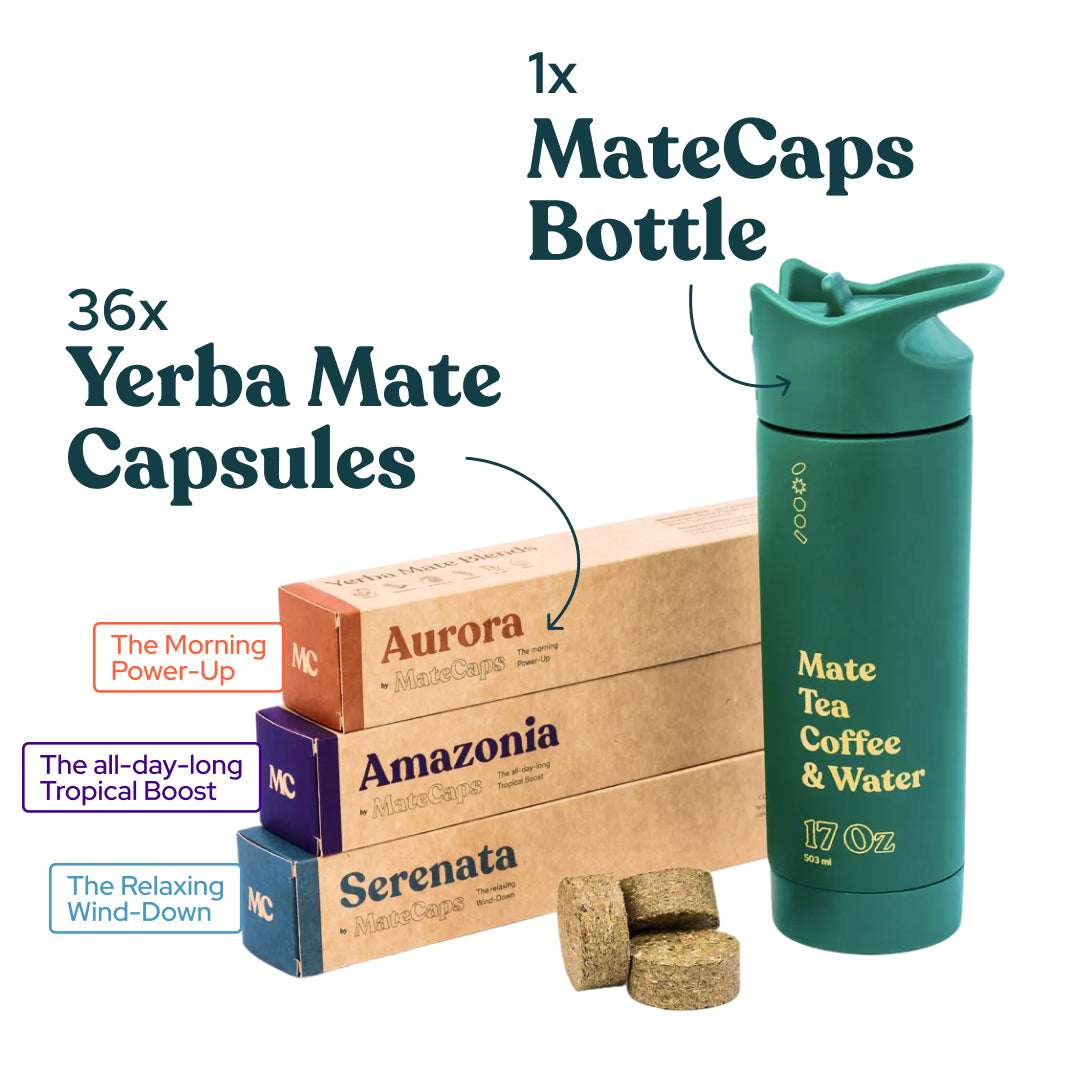
Is Monster Zero Bad for Your Heart?
Quick answer: Many people can drink Monster Zero without immediate heart damage, but the drink's high caffeine and stimulant content can raise heart rate and blood pressure in sensitive individuals. Read on for a clear look at the science, risks, and safer options. ⚠️❤️
Why this question matters
Energy drinks are everywhere. People reach for them for focus, long workdays, and workouts. But health-conscious readers ask: is Monster Zero bad for your heart? This matters because the heart reacts quickly to stimulants. A small change in heart rate or rhythm can be harmless for one person and risky for another.
This article breaks down what Monster Zero contains, how those ingredients affect the cardiovascular system, who is at higher risk, and practical steps you can take to protect your heart. You’ll get evidence-based guidance and real-world examples. ✅
What is Monster Zero? (short overview)
- Sugar-free energy drink marketed as a low-calorie alternative.
- Major active ingredients: caffeine, taurine, B-vitamins, and artificial sweeteners (like sucralose or acesulfame K depending on region).
- Typical 16 fl oz (473 mL) can: about 140–160 mg caffeine (varies by product line).
The label matters. Always check caffeine and ingredient lists on your specific can.
How caffeine and other ingredients affect the heart
Caffeine: stimulant effects
Caffeine is the primary active compound in most energy drinks. It blocks adenosine receptors and increases adrenaline (epinephrine) release. The effect on the heart can include:
- Higher heart rate (tachycardia)
- Increased blood pressure for several hours
- Possibly enhanced arrhythmia risk in susceptible people
For most healthy adults, moderate caffeine intake (up to 400 mg/day) is considered safe. But a single can of Monster Zero supplies a meaningful portion of that limit. Combined with coffee, tea, or other energy drinks, intake can quickly exceed safe levels.
Taurine and amino acids
Taurine is often included in energy drinks. Human studies suggest taurine may have neutral or even beneficial effects on blood pressure and cardiac function when used alone. However, the combination of taurine with high caffeine and other stimulants creates a complex mix — and research on these combinations is limited.
Artificial sweeteners
Sugar-free drinks use artificial sweeteners to reduce calories. Current evidence shows no direct, acute harmful effect of common artificial sweeteners on heart rhythm or blood pressure for most people. Long-term metabolic effects are still studied.
Other stimulants and vitamins
Some drinks include guarana, ginseng, or B-vitamins at high doses. These may amplify caffeine’s effects or have their own physiological impacts. High doses of certain B-vitamins can cause mild issues like flushing or stomach upset, but they’re not usually cardiotoxic.
What the research says about energy drinks and heart risk
Scientific studies show mixed results. Key findings:
- Short-term studies often report increased heart rate and blood pressure after energy drink consumption.
- Case reports link excessive energy drink intake to palpitations, arrhythmias, and in rare cases chest pain or cardiac events, especially in people with underlying heart disease.
- Large-scale, long-term data are limited. Most evidence is observational or short-term experimental.
A reasonable interpretation: Energy drinks can produce measurable cardiovascular changes. For most healthy people this may be temporary and tolerated. But in people with heart disease, hypertension, or predisposition to arrhythmias, energy drinks can increase risk.
Who is at higher risk? (be cautious if...)
- You have a diagnosed heart condition (coronary artery disease, cardiomyopathy).
- You have high blood pressure or uncontrolled hypertension.
- You experience frequent palpitations, fainting, or irregular heartbeats.
- You take medication affected by stimulants (e.g., beta-blockers, certain antidepressants, anti-arrhythmics).
- You are pregnant or breastfeeding.
- You routinely combine energy drinks with alcohol or multiple caffeine sources.
If any of the above apply, consult a healthcare professional before using energy drinks regularly.
Common scenarios and practical examples
Scenario 1: Healthy adult, moderate use
- A 30-year-old with no heart disease drinks one Monster Zero before a long shift. They notice increased alertness and a slightly elevated pulse for a couple of hours. No lasting effect. Outcome: likely safe in moderation. ✔️
Scenario 2: Person with hypertension
- A 45-year-old with high blood pressure drinks two cans during a stressful day. Their BP spikes and they feel dizzy. Outcome: higher risk — avoid or consult physician. ⚠️
Scenario 3: Mixing with alcohol
- A college student mixes Monster Zero with alcohol to stay awake. Caffeine masks alcohol’s sedative effects, increasing risky drinking and poor judgement. This combination can increase arrhythmia risk. Outcome: risky behavior — avoid. ❌
Scenario 4: Competitive athlete
- An endurance athlete uses Monster Zero before a race. A small performance boost occurs, but heart rate climbs. The athlete monitors heart rate closely and avoids overuse. Outcome: potentially acceptable if managed and not overdone. 🏃♂️
How much is too much? Practical limits
- General adult caffeine limit: up to 400 mg/day for most healthy adults.
- One 16 oz can of Monster Zero: roughly 140–160 mg caffeine.
- Avoid consuming multiple energy drinks in a short window.
Signs you’ve had too much caffeine:
- Rapid heartbeat or fluttering
- Severe anxiety or jitteriness
- Tremors
- Nausea or abdominal pain
- Chest discomfort or shortness of breath
If you experience chest pain, fainting, or severe palpitations, seek immediate medical care.
Tips to reduce heart risk while using energy drinks
- Limit frequency. Avoid daily or multiple-can consumption.
- Check labels. Know exact caffeine content.
- Avoid mixing with alcohol or other stimulants.
- Space out consumption from other caffeine sources (coffee, tea, supplements).
- Monitor symptoms. If palpitations or chest discomfort occur, stop and consult a provider.
- Hydrate. Dehydration can worsen stimulant effects.
Safer alternatives for clean energy ⚡️🍃
If you want energy without the cardiovascular uncertainty, consider:
- Yerba Mate: natural caffeine with L-theanine-like calming effects in some users. Provides steady focus without harsh jitter. (Many people report a “clean” lift.)
- Green tea: lower caffeine and beneficial antioxidants.
- Moderate coffee: when timed and dosed appropriately.
- Sleep, timing, and nutrition: the best long-term energy supports.
These alternatives can lower the need for high-stimulant drinks and reduce heart strain.
Testimonials & social proof
[📷] "I used to reach for energy drinks daily. After switching to mate, my heart rate feels steadier and I crash less." — Jamie R., 34
[📷] "Doctor warned me about palpitations. Cutting out energy drinks changed everything. No more midday spikes." — Marcus L., 42
These are individual experiences and not medical proof. But they reflect common patterns clinicians see.
When to see a doctor
Seek medical evaluation if you:
- Experience chest pain, fainting, or severe shortness of breath after drinking an energy drink.
- Have persistent palpitations or irregular heartbeat.
- Have high blood pressure that worsens with caffeine intake.
A clinician may recommend ECG monitoring, blood pressure tracking, or reviewing medications and underlying conditions.
Bottom line: is Monster Zero bad for your heart?
- For many healthy adults, an occasional can of Monster Zero is unlikely to cause lasting heart damage. However, the drink can raise heart rate and blood pressure acutely.
- People with cardiovascular disease, hypertension, arrhythmia risk, or those mixing stimulants should avoid or limit use.
- The safest approach is moderation, label awareness, and medical consultation if you have risk factors.
Choosing a beverage that matches your health profile matters. If your goal is steady, clean energy with less cardiovascular jitter, explore lower-stimulant options.
Resources and further reading
- Peer-reviewed studies on energy drinks and cardiovascular effects
- Professional society statements on caffeine intake
- Clinical guidance for patients with arrhythmias
(Ask your healthcare provider for tailored advice.)
Conclusion
If you’re weighing the heart risks of energy drinks, the key is informed choice. Monster Zero can raise heart rate and blood pressure — effects that are usually temporary in healthy people but potentially dangerous in others. Consider lower-stimulant alternatives and consult a clinician when in doubt.
For those seeking cleaner, steadier energy options that may be gentler on the cardiovascular system, brands focused on natural sources like yerba mate provide alternatives worth exploring. Learn more about natural mate-based options at MateCaps: https://matecaps.com — they focus on steady energy and clear labeling to help people make safer, informed choices. 🌿✨
Author: Health editorial team
Read time: ~8 minutes
Frequently Asked Questions
How much caffeine is in a can of Monster Zero and is it safe?
A standard 16 fl oz (473 mL) can of Monster Zero typically contains about 140–160 mg of caffeine, though this can vary by product line and country. For most healthy adults, up to 400 mg of caffeine per day is considered a generally safe limit. That said, safety depends on overall intake: combining a can of Monster Zero with coffee, tea, or other caffeinated products can push you past the recommended limit. Individuals sensitive to caffeine or with certain medical conditions (like hypertension, arrhythmias, or cardiovascular disease) should consume much less or avoid it entirely. Always check labels and track your total daily caffeine.
Can drinking Monster Zero cause arrhythmias or heart palpitations?
Energy drinks, including Monster Zero, have been associated in case reports and small studies with palpitations and arrhythmias, especially in people with underlying heart issues or those who consume large amounts. Caffeine and other stimulants can increase heart rate and electrical excitability in the heart. While most healthy people won’t develop a dangerous arrhythmia from a single can, those with predispositions to irregular rhythms should be cautious. If you experience new or troubling palpitations after consuming energy drinks, stop consumption and seek medical evaluation.
Are sugar-free energy drinks like Monster Zero safer for the heart than sugary ones?
Sugar-free energy drinks avoid the immediate metabolic effects of sugar (like rapid blood glucose spikes). However, sugar-free does not mean risk-free. The cardiovascular concerns with energy drinks generally stem from **stimulant content (caffeine, guarana, etc.)**, not sugar alone. Artificial sweeteners have not been conclusively shown to cause acute heart rhythm problems, but long-term metabolic effects remain under study. For heart health, limiting stimulant load and monitoring blood pressure and symptoms is more important than sugar content alone.
What should someone with high blood pressure know about Monster Zero?
Caffeine can acutely raise blood pressure in some people, and energy drinks may produce larger spikes than coffee in certain studies. If you have high blood pressure (hypertension), drinking Monster Zero may worsen control, particularly if consumed frequently or alongside other stimulants. It’s wise to discuss caffeine intake with your clinician, monitor blood pressure at home after use, and consider alternatives if you notice consistent rises in readings or symptoms like headaches or dizziness.
Can mixing Monster Zero with alcohol increase heart risk?
Yes. Combining caffeine-containing energy drinks with alcohol is risky because caffeine can mask the sedating effects of alcohol. People may drink more, take greater risks, and be less aware of impairment. This combination also adds strain on the cardiovascular and nervous systems and has been linked to increased incidents of palpitations, arrhythmias, and other adverse events. For heart safety, avoid mixing energy drinks and alcohol.
Are there safer energy alternatives for people worried about heart effects?
Safer alternatives include lower-caffeine beverages like green tea, properly dosed coffee, or naturally derived caffeine sources like yerba mate. Lifestyle measures — improved sleep, timed nutrition, and regular exercise — remain the most effective long-term energy strategies. Some people find mate-based products provide smoother focus with fewer jitters than high-stimulant energy drinks. Always choose options with clear labeling and moderate your total daily caffeine.
Recommended resources
- how yerba mate compares to energy drinks
- the science behind energy drinks versus yerba mate
- how much caffeine is in yerba mate
- why some people switch from coffee to yerba mate
- best alternatives to coffee and energy drinks
- effects of energy drinks on the cardiovascular system (review)
- Energy Drinks and Their Impact on the Cardiovascular System (review)
- Energy Drinks and the Risk of Cardiovascular Disease (analysis)
